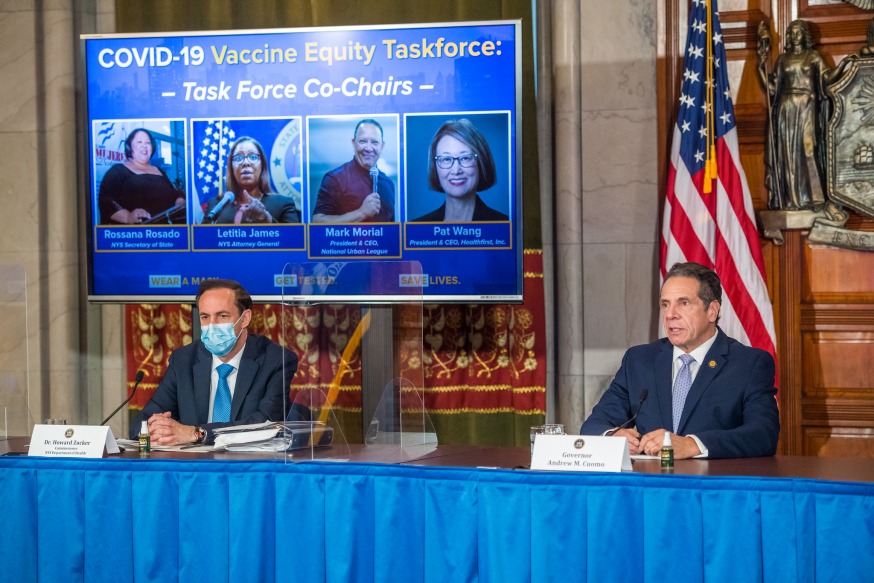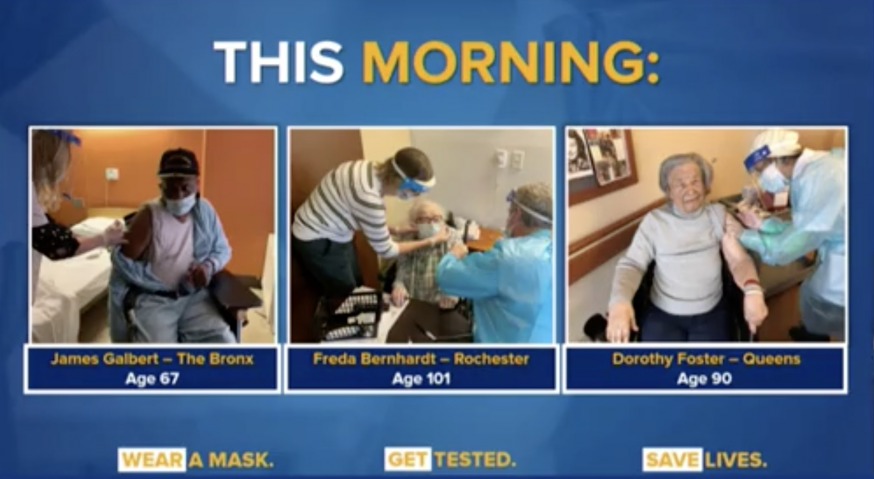
Governor Andrew Cuomo (Governor Andrew Cuomo)
Dec. 21, 2020 By Allie Griffin
Nursing home residents and staff across New York state began receiving the COVID-19 vaccination today.
Other essential workers also began receiving the shot — including workers at federally-qualified health centers, EMTs, medical examiners and other congregate care workers, Governor Andrew Cuomo announced.
The groups are among the first to receive the vaccine — behind frontline hospital workers.
Vaccinations at 618 nursing homes statewide are expected to be administered over the course of the next six weeks and are being conducted by CVS, Walgreens and other pharmacies.
The coronavirus has devastated nursing home facilities. Across New York, the virus has killed roughly 6,500 nursing home residents, according to state figures.

The first nursing home residents were vaccinated for COVID-19 this morning (Governor Andrew Cuomo)
More than 38,000 vaccine doses had been administered in New York as of Monday morning — a number higher than any other state, Cuomo said.
“We have already distributed more vaccine, and our hospitals have vaccinated more people than any state in the nation,” Cuomo said. “We did this despite the snowstorm that we had over the past few days.”
Mayor Bill de Blasio praised New York City’s vaccination efforts at an earlier press briefing Monday. He said the city has administered more than 42 percent of its vaccine supply compared to the national average of 19 percent.
“Based on the data we’ve received from the CDC, New York City is vaccinating people basically at twice the national average time,” de Blasio said.
The state has received more than 160,000 doses of the Pfizer vaccine thus far. Another 120,000 doses of the Pfizer vaccine will arrive in the state this week as well as 346,200 doses of the recently-approved Moderna vaccine, Cuomo said.
The governor also announced the creation of New York’s Vaccine Equity Task Force to ensure vulnerable and underserved communities, such as minority and low-income neighborhoods, get vaccinated.
Health experts say that between 75 and 85 percent of the population needs to be vaccinated for COVID-19 in order to beat the virus. Recipients also need to be vaccinated twice for it to be effective.






